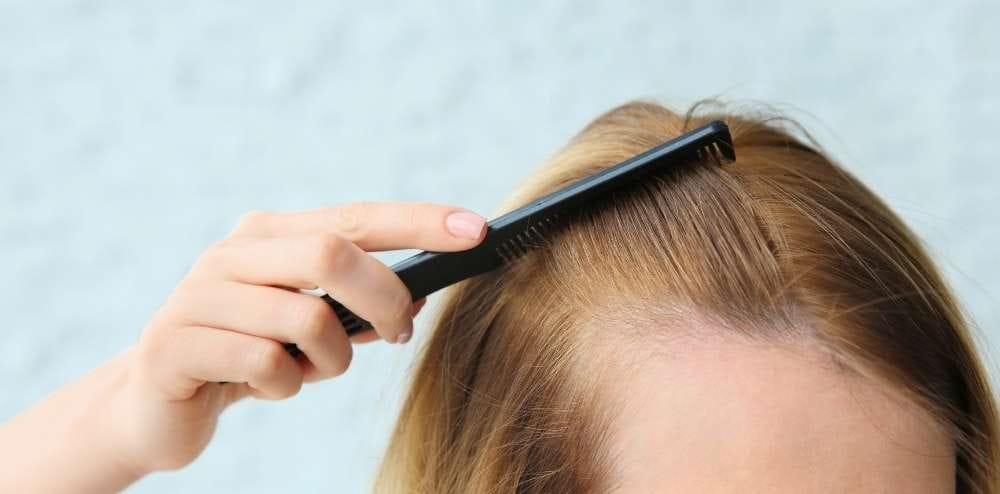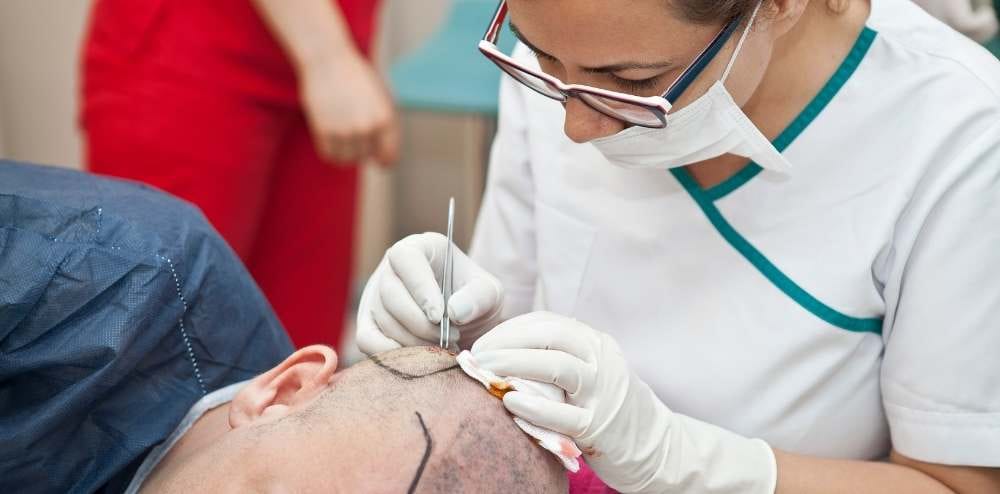You probably already know that stress may have a huge effect on our health and well-being, but did you also know that it can have a substantial effect on our hair? Stress can lead to hair loss, thinning, and other issues that are associated with the hair, it is vital to understand the connection between stress and hair loss and what you can do to manage both of these conditions.
In this article, we are going to discuss the various forms of hair loss that can be caused by stress, such as chronic stress-related hair loss, telogen effluvium, and trichotillomania. In addition, we will go over some easy activities you can take to combat the hair loss that can result from stress, such as engaging in regular physical activity, maintaining a nutritious diet, staying away from sources of extreme heat, and avoiding the use of harsh chemicals on your hair.
Different Patterns of Hair Loss Caused by Stress
There are several different types of hair loss that can be caused by stress, and each of these types has its own set of symptoms and causes. Let’s have a look at some of the most frequent categories in greater detail.
Hair loss due to persistent stress
Long-term exposure to stress is the root cause of chronic stress-related hair loss, which is a problem that affects both men and women. Cortisol is a hormone that is secreted by our bodies in response to stress. This hormone has been shown to cause hair loss by interfering with the regular hair growth cycle. This can, in time, result in a loss of hair or possibly complete baldness.
Effluvium of the telogen phase
Telogen effluvium is a form of hair loss that takes place when the typical phases of the hair development cycle are thrown off. This can be brought on by a number of different things, such as stress, shifts in hormone levels, or even particular medical disorders. It is possible that hair will come out in large clumps if the growth of the hair is impeded, which will ultimately lead to thinning hair.
Trichotillomania
Trichotillomania refers to a pattern of hair loss that is brought on by the compulsive pulling out of one’s own hair. This disorder is generally brought on by stress, anxiety, or other emotional concerns, and it can lead to thinning hair or patchy baldness in affected areas of the scalp.
How to Treat Hair Loss Caused by Stress and Anxiety?
So, what can you do to combat the hair loss that might be caused by stress and to encourage the growth of healthy hair? You can accomplish a lot with only a few of these easy steps:
Exercise
Stress reduction and good hair growth are two of the many benefits that come from regular exercise. Participating in regular physical activity can assist to lower cortisol levels, which in turn can help to lessen the risk of hair loss. Therefore, make it a goal to engage in some form of physical activity every day for at least half an hour, whether it be a stroll, a jog, a bike ride, or a yoga session.
Have a healthy diet.
Consuming nutritious food on a regular basis is absolutely necessary in order to encourage good hair development. Reduce the amount of sugar, processed foods, and harmful fats that you consume, and increase the amount of fruits, vegetables, lean protein, and healthy fats that you consume in your diet. This will help to offer your body with the nutrients it needs to maintain healthy hair growth and will contribute to the growth of your hair.
Use of extreme heat should be avoided.
Your hair might suffer damage from using heat tools too frequently, which can lead to it becoming dry, brittle, and more prone to breaking. Therefore, make it a goal to either completely abstain from the usage of hot styling products such as curling irons, flat irons, and blow dryers or to use them as little as possible. If you have no choice but to apply heat on your hair, at least use a heat protectant spray before you start styling it to help prevent damage.
Avoid putting any chemicals in your hair.
The use of harsh chemicals on your hair, such as bleach, perms, and dyes, can cause damage and increase the chance of hair loss. Therefore, you should make every effort to steer clear of the usage of these chemicals or, at the at least, restrict your exposure to them. If you really have to color your hair, choose a natural, semi-permanent colour and steer clear of any chemical treatments like relaxers or perms.
In addition to the advice presented here, it is essential that you learn how to control your levels of stress and get a enough amount of rest and relaxation. Included in this category are pursuits such as meditating, doing deep breathing techniques, and spending time with friends and loved ones.
If you are worried about hair loss caused by stress, you should talk to your primary care physician or a specialist who specializes in hair loss. It’s possible that your primary care physician will be able to recommend some additional therapies or medications that, in addition to encouraging hair growth, will help you better manage your stress levels.
In conclusion, there is a true link between stress and hair loss. Because of this, it is essential to have a solid understanding of the various forms of hair loss that can be caused by stress, as well as the solutions that are available for dealing with these forms. You may assist in the promotion of healthy hair growth and prevent the risk of hair loss by making a few straightforward adjustments to your lifestyle. Therefore, make today the day you start taking care of both your hair and your levels of stress.







